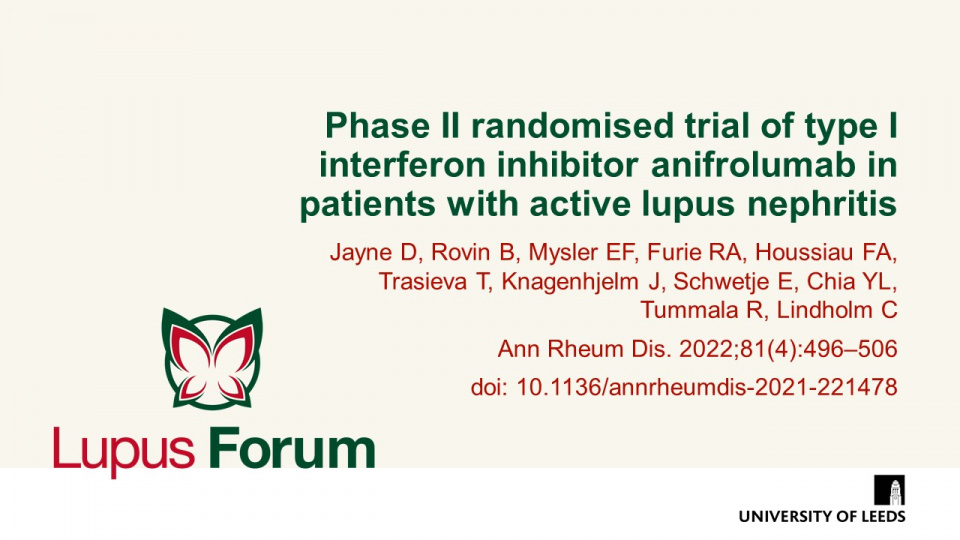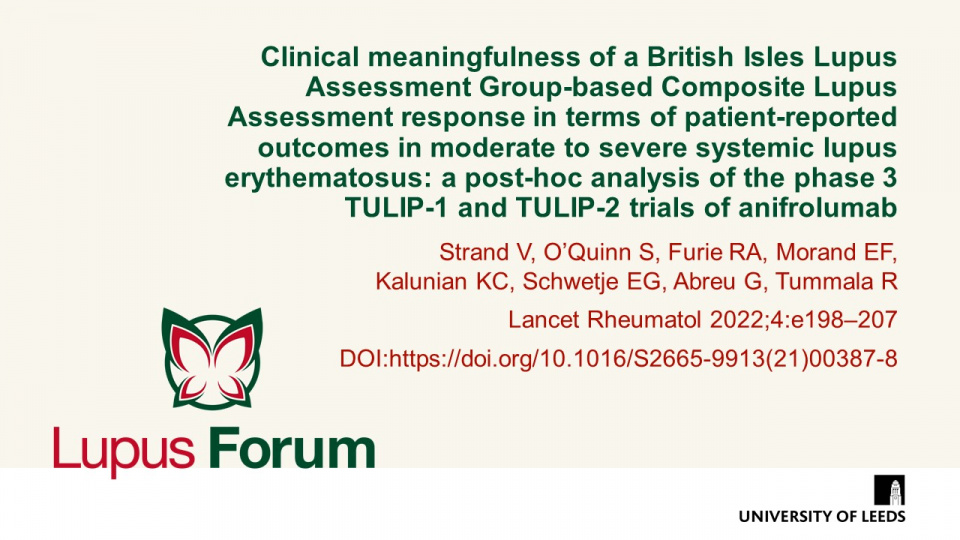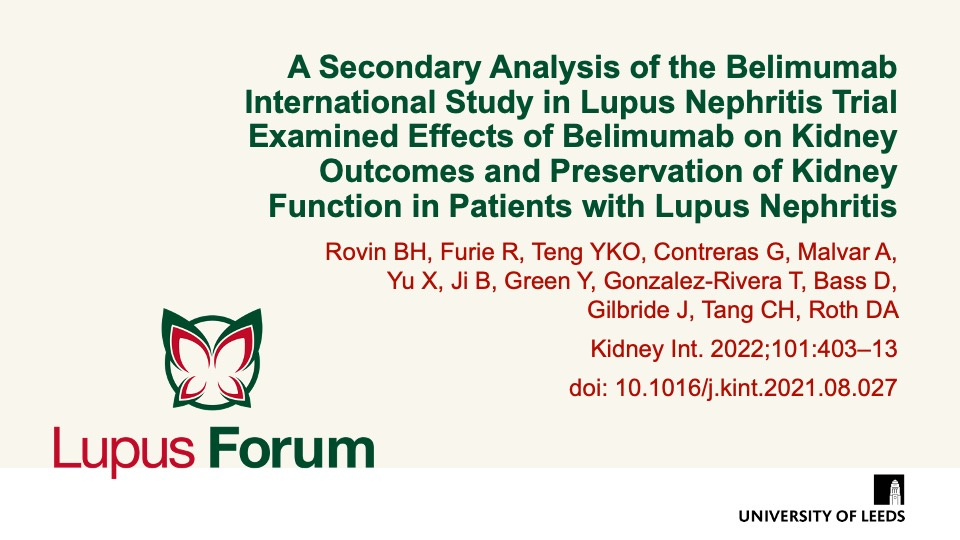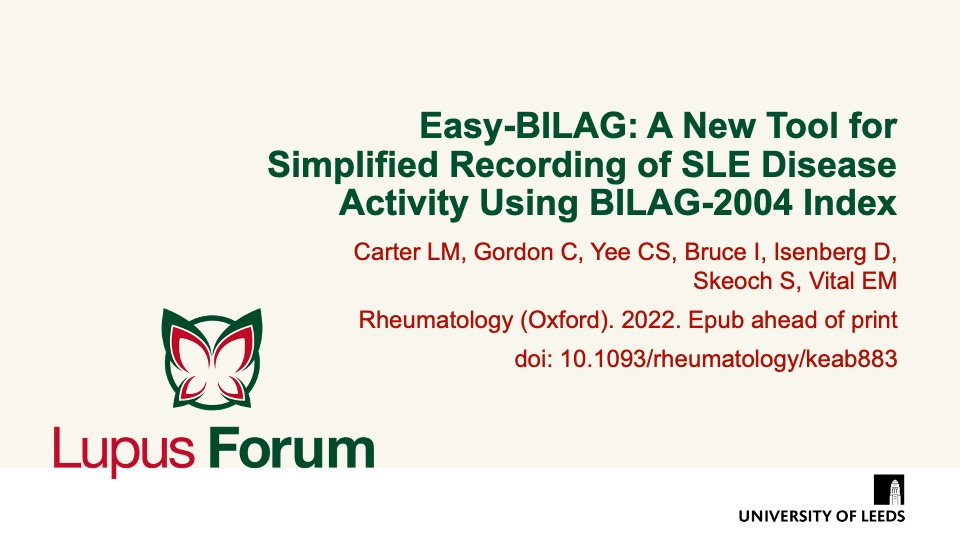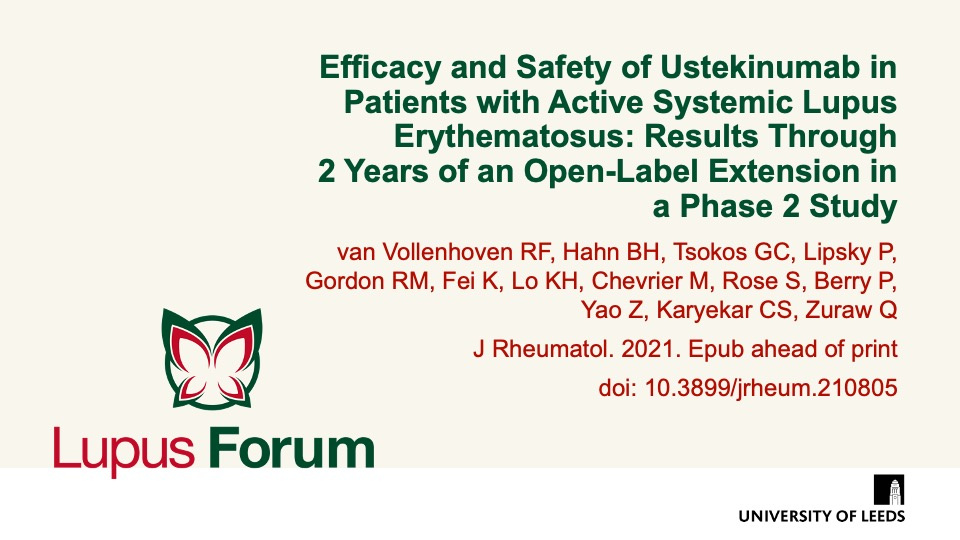Publications
Find coverage of the latest original articles on Lupus, focusing on those with data on therapeutic interventions and those that have clinical impact.
Long-Term Results of Triple Immunosuppression With Tacrolimus Added to Mycophenolate and Corticosteroids in the Treatment of Lupus Nephritis
Kidney Int Rep. 2021;7(3):516–25
Analysis of 22 patients with lupus nephritis (LN) demonstrates that triple immunosuppression with the addition of tacrolimus to mycophenolate and prednisolone results in further proteinuria reduction.
Phase II randomised trial of type I interferon inhibitor anifrolumab in patients with active lupus nephritis
Ann Rheum Dis. 2022;81(4):496–506 doi: 10.1136/annrheumdis-2021-221478
Despite not meeting the primary endpoint, this Phase II trial of anifrolumab in patients with active lupus nephritis (LN) demonstrates that anifrolumab IR is associated with numerical improvements over placebo across endpoints – including complete renal response – in patients with active LN.
Keywords:
Clinical meaningfulness of a British Isles Lupus Assessment Group-based Composite Lupus Assessment response in terms of patient-reported outcomes in moderate to severe systemic lupus erythematosus: a post-hoc analysis of the phase 3 TULIP-1 and TULIP-2 trials of anifrolumab
Lancet Rheumatol 2022;4:e198–207
In patients with moderate-to-severe SLE, British Isles Lupus Assessment Group-based Composite Lupus Assessment (BICLA) responders report improvements in disease activity, health-related quality of life, fatigue, and pain.
A secondary analysis of the Belimumab International Study in Lupus Nephritis trial examined effects of belimumab on kidney outcomes and preservation of kidney function in patients with lupus nephritis
Kidney Int. 2022;101(2):403-413 doi: 10.1016/j.kint.2021.08.027
Post-hoc analysis data suggests that the addition of belimumab to standard therapy may be effective in preserving long-term kidney function in patients with lupus nephritis (LN).
Efficacy of anifrolumab across organ domains in patients with moderate-to-severe systemic lupus erythematosus: a post-hoc analysis of pooled data from the TULIP-1 and TULIP-2 trials
Lancet Rheumatol. Published online February 3, 2022
Across two pivotal phase 3 trials (TULIP-1 and TULIP-2), anifrolumab treatment improved systemic lupus erythematosus (SLE) disease activity across multiple organ domains, compared with placebo.
Keywords:
Easy-BILAG: a new tool for simplified recording of SLE disease activity using BILAG-2004 index
Rheumatology (Oxford). 2022. Epub ahead of print doi: 10.1093/rheumatology/keab883
Easy-BILAG is a high-accuracy, time-efficient tool for recording BILAG-2004 disease activity in systemic lupus erythematosus (SLE).
Disease activity measurements in SLE are necessary for optimal patient care, treat-to-target approaches and clinical guidelines. However, administrative burden and potential frequency of errors with the current comprehensive disease activity instrument (BILAG-2004) limits its use in routine practice.
The Interferon Gene Signature as a Clinically Relevant Biomarker in Autoimmune Rheumatic Disease
Lancet Rheumatol 2022;4:e61–72.
The interferon gene signature (IGS) fits into the paradigm of a personalised approach to care in rheumatic diseases, where an individual’s score could inform either prompt diagnosis, early use of certain therapies, or presage specific clinical phenotypes.
Efficacy and Safety of Ustekinumab in Patients with Active Systemic Lupus Erythematosus: Results Through 2 Years of an Open-Label Extension in a Phase 2 Study
J Rheumatol. 2021. Epub ahead of print
Phase II data demonstrate clinical benefit in global and organ-specific SLE-activity measures with ustekinumab through 2 years with no new or unexpected safety findings.
Keywords:
Treatment of refractory subacute cutaneous lupus erythematosus with baricitinib
Clin Exp Dermatol. 2021. Epub ahead of print
Phase II data and two individual case reports have shown significant improvement in signs and symptoms of disease in patients with systemic lupus erythematosus (SLE) receiving baricitinib. This case study by Joos et al. reports a further patient with SLE treated successfully with baricitinib.



